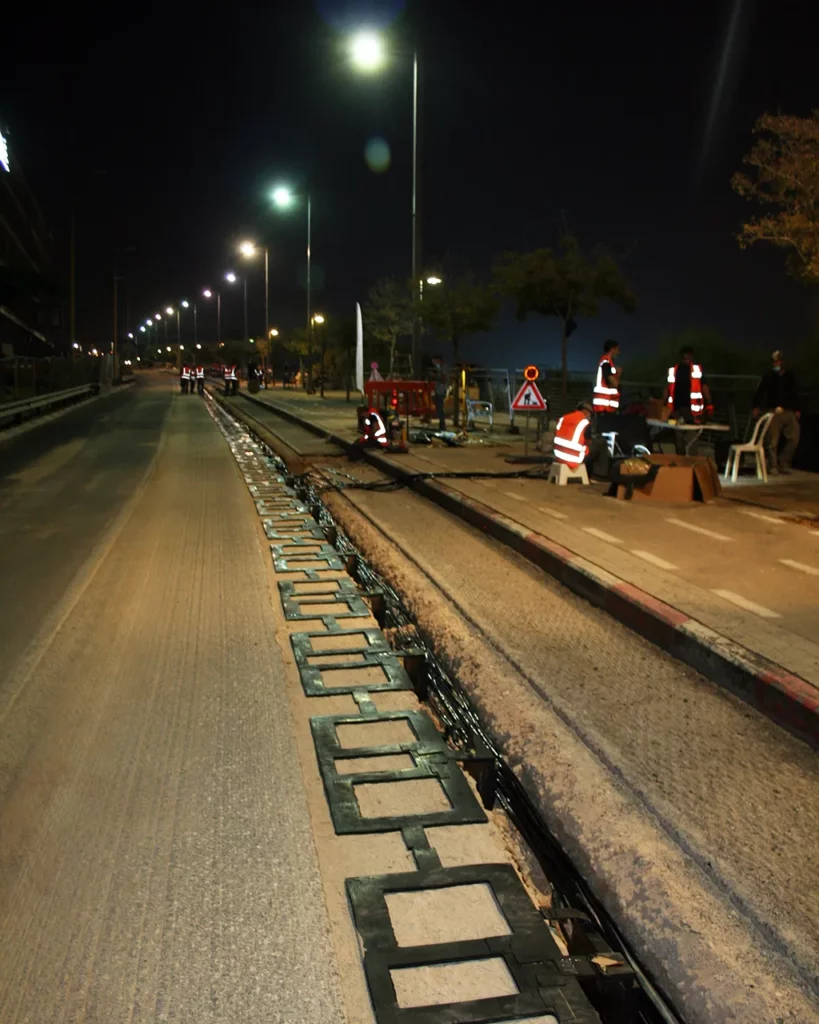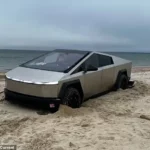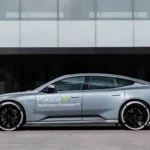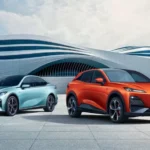Detroit, MI – With its innovative wireless-charging roads for EVs, Detroit is making waves in the electric vehicle (EV) world. The city recently introduced a quarter-mile stretch on 14th Street, equipped with technology that allows EVs to charge, idle, or park above specially designed coils while moving.
Developed by Israel-based company Electreon, this wireless-charging road aims to tackle common EV challenges, such as limited range, grid constraints, and hefty battery costs. Stefan Tongur, Electreon’s Vice President of Business Development, emphasized the potential for widespread EV adoption.
“This technology, coupled with Michigan‘s automotive expertise, shows how wireless charging can overcome challenges like limited range and high battery costs,” Tongur explained.

The project, announced in 2021 by Michigan Governor Gretchen Whitmer, is in a testing phase on 14th Street within the Michigan Central Innovation District. This district is a hub for advancing mobility technologies and is also where Ford Motor Co. works on self-driving vehicles.
ALSO READ: From $80,000 to $8,000: 26-Year-Old Engineer’s Game-Changing Bionic Arms Set New Industry Standard
While electric roads are not entirely new (Sweden is constructing a permanent electrified road), Detroit’s initiative is a significant stride for the United States, aiming to address the scarcity of charging stations.
Fox 2 Detroit breaks down the wireless charging process, involving coils beneath the road linked to a power management unit. Vehicles with receivers draw power from these coils as they travel along the route.
An electric road of 155-186 miles (250-300km) long on busy routes could reduce carbon dioxide emissions from lorries by more than 200,000 tonnes
SOURCE BBC

The Detroit wireless-charging road project was initiated in 2021 to alleviate concerns about the limited range of electric vehicles. In 2022, Electreon was chosen to oversee the project, making Detroit the first U.S. city to implement this innovative technology.
ALSO READ: BMW says Goodbye to Electric Cars; it has now Solved the Problem of Hydrogen Engines
Stefan Tongur assured the public of the safety of their system, emphasizing that each coil has separate connections and only charges when a vehicle with a sensor is directly above it.

Though these electric roads aren’t a complete solution for expanding EV charging infrastructure, they act as range extenders, allowing automakers to reduce battery sizes.
Deputy Mayor Todd Bettison acknowledged the challenges but expressed optimism, saying, “This is just the beginning of the future, and I want everyone to take a moment to savor it.”
ALSO READ: Scientist Reveals Plants “Scream” When Cut, Using Ultrasonic Devices
Detroit’s introduction of the U.S.’s first electric roads for EVs marks a significant milestone. These wireless charging paths can potentially encourage EV companies to reduce battery sizes, making electric cars more accessible and affordable than ever.









